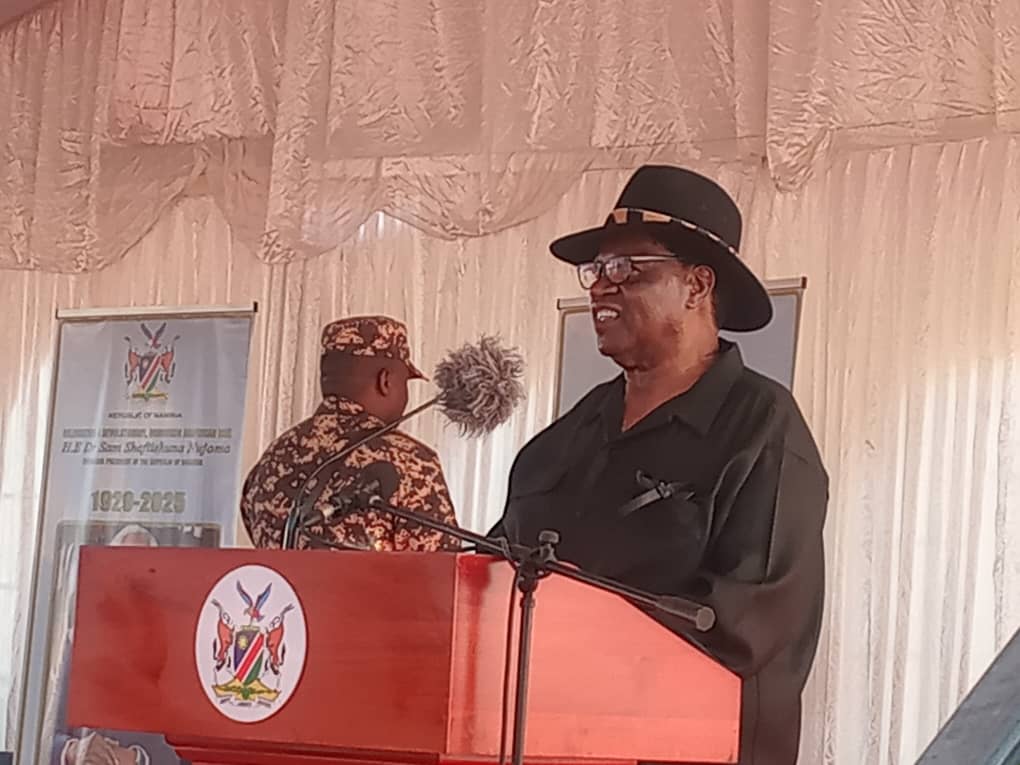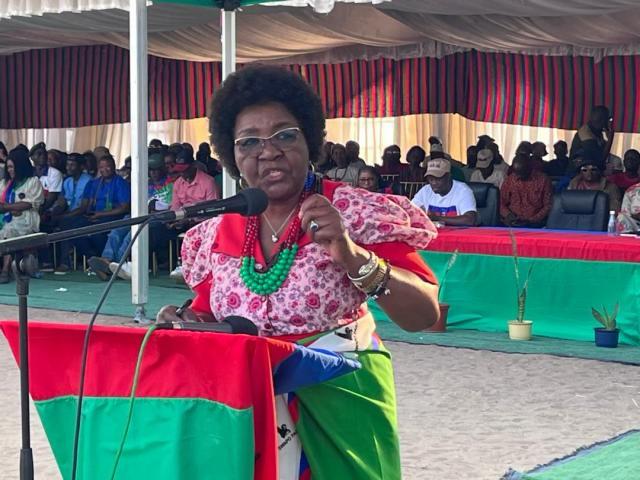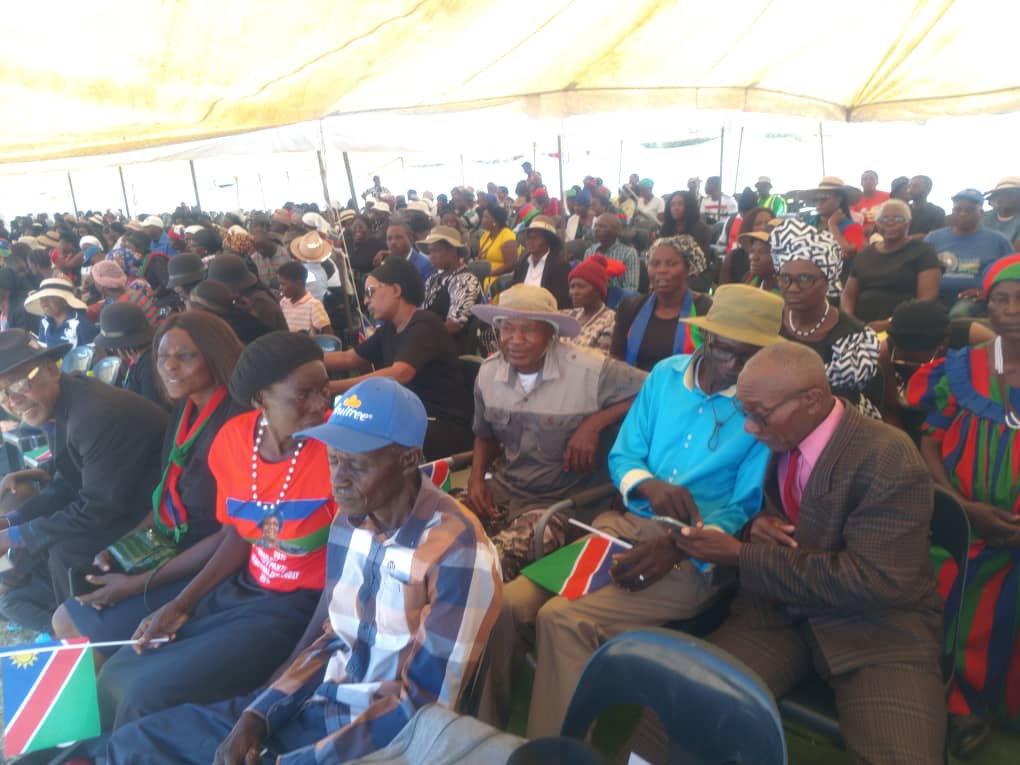‘Walvis Bay: Our Story’ by Taati Niilenge takes a heartwarming journey back in time through the recollections of the elders of the town “neatly tucked away where the ocean meets the sea”.
Describing life under apartheid rule and its strict controls, Niilenge relates the experiences of various older residents from when the now bustling town was just a small seaside village.
The book was launched as Walvis Bay marked 30 years of reintegration into Namibia on 1 March, and Niilenge says she “needed it to be a gift” to the people of the town.
She considered how the youth had little idea of what life was like at Walvis Bay before independence.
“Some still have grandparents, while others have missed out on this privilege. Their elderly relatives passed away without telling their stories. We lose a part of our history with every elder that we lose.
“The new generation is getting lost in the pool of this modern world. Thus, giving them a piece of their history is important before no one is left to tell the stories,” says Niilenge.
She started her mission to “document stories of the origins of generations” by recounting how a group of black and Coloured people began arriving at Walvis Bay from various parts of Namibia and other countries in the 1930s.
Different tribes and races initially lived together in harmony in the old location, before the apartheid regime forced them to move away from the white area of the town.
“Kuisebmond and Narraville were not the very beginning. It began with a small section of Walvis Bay in the old location where our great-grandparents met.”
Niilenge spoke to some of those who were born at the town, as well as others who arrived later. Each recounted their memories of coal stoves and oil lamps, yard raking competitions and window cleaning every weekend.
PERVASIVE FEAR
Despite some repetition in the tales of various people, it is important to hear what life was like under white oppression.
Jobs may have been as plentiful as the fish, but it was still a time of pervasive fear under the authorities.
The people simply had no choice about moving to Kuisebmond and Narraville, and older children who had completed school were forced to pay ‘koptax’ (renting tax) to continue living in their parents’ homes.
Relatives from other towns who wanted to visit black people at Walvis Bay had to get a permit detailing how long they planned to stay, which was strictly enforced.
“While interviewing our grandparents, parents, aunts and uncles, I realised that theirs is a history of love, unity, generosity, survival and much fun … amid an era where they had to endure a lot during the apartheid period,” says Niilenge.
White policemen instilled sheer terror by showing up at all hours to catch people without permits, as well as those who sold and brewed traditional beer, the book details.
Niilenge says families at Kuisebmond and Narraville faced many extreme challenges, but stuck to the tradition of unity and love, which kept them going in times of adversity. Food was abundant and neighbours freely shared.

There was a strong sense of community and safety, despite there being no walls around houses or streetlights, and neighbours treated one another as family.
“The Walvis Bay community came out of a group of survivors from the old location. I wanted to use their experience to gain pride that there is something that cannot be taken away from us,” Niilenge says.
The book further details the Walvis Bay elders’ perspectives of how life has changed. They say young people were better disciplined in the past, and had reverence for their elders.
The Bible was a central part of life and school in those days, while music and sport were an important source of entertainment and relaxation.
Today, residents of the town reflect with much pride on the sporting stars birthed at Walvis Bay, while some of Namibia’s best-loved bands, like the Ugly Creatures, also emerged from the duneside town.
“I hope that through these stories, generations can sit back and just laugh at the funny moments of their elders, while it brings back memories for those who relived the moments.
“We will always remember the ones who were there before us. They shaped us into who we are today. They tell us about the importance of community,” says Niilenge.
“The highlight of writing this book was having my parents as my co-writers. They connected me to friends, showed me historical places where they played and attended school,” she says.
FADED MEMORIES
“The community immediately got excited about the book and started to share their stories and contribute pictures. I used a lot of old pictures to show the youth what their elders are talking about and how the town grew.”
The use of photos certainly adds a nostalgic element and brings to life the culture of the time. Though some are cracked and faded, they evoke a sense of historical significance.
Niilenge certainly made a noble effort at documenting the recollections of some of its oldest residents. The 118-page book is both an enjoyable read and an important archival source.
‘Walvis Bay: Our Story’ is available in print for N$250 directly from Niilenge (interested readers can contact her at 081 249 1161) and copies are also available at Probst Bakery at Walvis Bay, one of the oldest businesses at the town and also mentioned in the book.
“My dream is to have the book in libraries and youth centres, where the youth can read them,” she says.
Niilenge worked on ‘Walvis Bay: Our Story’ for about a month.
“The most rewarding part was meeting people on the street who told me how they enjoyed the book. Young people, especially, told me they never knew there was another location, and they were totally clueless about the events that led to them being here today.”
So far, Niilenge says book sales are going really well, especially among Walvis Bay residents who want to take a stroll down memory lane and read about their families.
“It has so far been bought by libraries and history groups in South Africa, Kenya and Switzerland. I will soon send copies to libraries in Windhoek,” she says.
ABOUT THE AUTHOR
Niilenge, a journalist and author, was born at Walvis Bay.
She has written various short stories for the Women’s Leadership Centre, and some of her stories were published in the anthologies ‘Between Yesterday and Tomorrow’ and ‘We Must Choose Life’.
She became a Hubert Humphrey Fellow in 2010 and spent a year at Arizona State University in the United States, where she furthered her studies in journalism and leadership.
She also served as a volunteer English teacher for West African refugee women in Arizona.
Niilenge’s previous offerings include the children’s books ‘Pewa’s Ocean Adventures’ and ‘Pewa’s Namibian Safari’, as well as the Christian books ‘The Still Small Voice’ and ‘The Plan’.
She opted to self-publish all her books, which was challenging at first, she says.
“I had to learn a lot about writing and publishing books, as I had no training. One minute you think you are done, and the next, you discover there are mistakes and you have to do it all over again,” she recalls.
She says learning to price books is also very important, as mistakes can mean the author would not make the needed profit.
“But I like challenges, so I pulled it off. From there, all my book publishing went smoothly.”
She is passionate about the youth of Namibia, and is involved in mentoring the youth at Walvis Bay.
Niilenge supports various organisations and individuals in the fight against drug and alcohol abuse among the Namibian youth, and is the founder of the Wailing Women intercession prayer group, which was started in 2018.
Stay informed with The Namibian – your source for credible journalism. Get in-depth reporting and opinions for
only N$85 a month. Invest in journalism, invest in democracy –
Subscribe Now!










